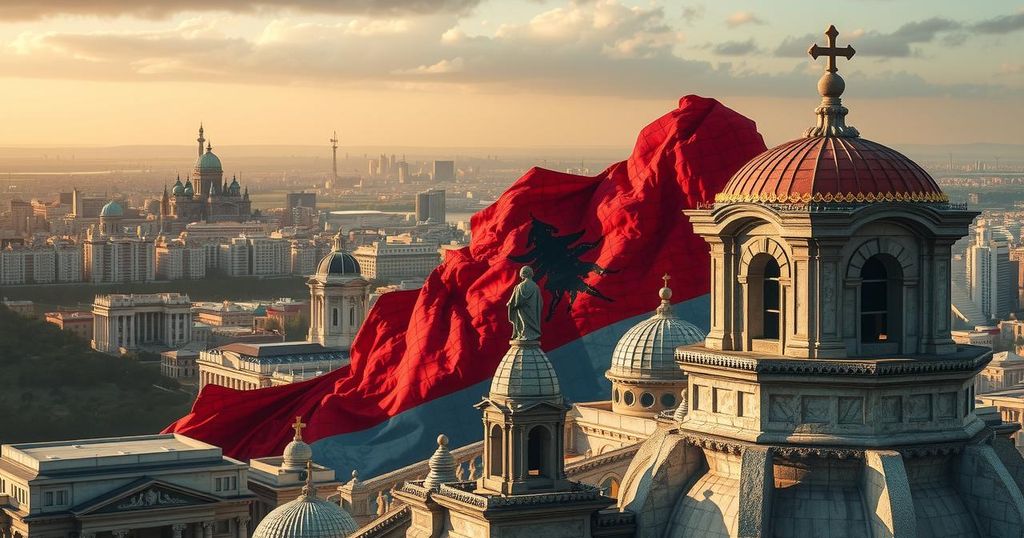Lebanon’s Presidential Election: A Critical Moment for Stability and Sovereignty

Lebanon’s presidential election is imminent, with parliament convening to choose a new leader amid ongoing political deadlock and economic crisis. A new president could stabilize the country and ensure adherence to ceasefire agreements, especially regarding Hezbollah’s operations. Candidates include Joseph Aoun, whose military background may unify factions, but Hezbollah’s influence complicates the political landscape. The results will significantly impact Lebanon’s future and reconstruction efforts.
The upcoming presidential election in Lebanon, set for Thursday, represents a pivotal moment for the nation following a prolonged period of political stagnation and crises. Lebanese lawmakers are convening for the 13th time over two years to elect a president, amid indications of changing geopolitical dynamics post-Israel’s military action against Hezbollah. A new president could potentially stabilize Lebanon, oversee adherence to the recent ceasefire agreement, and possibly facilitate the reconstruction process that is crucial for the country’s future. Lebanon has not had a president since October 2022, with the parliamentary divisions exacerbating the deadlock.
The Lebanese Parliament, divided into pro- and anti-Hezbollah factions, has struggled to reach a consensus, leaving the country under an interim administration without a permanent leader. This political vacuum hinders governance at a time when Lebanon’s dire economic situation necessitates efficient leadership and international support, particularly from the International Monetary Fund, which contingent upon political stability. Standing as a potential candidate is Joseph Aoun, the commander of the Lebanese Army, whose candidacy is backed by the United States and is perceived as a unifying figure.
Aoun has indicated that he would not confront Hezbollah directly, an approach suggested to ease tensions while potentially improving state control over national security. This is significant as Hezbollah retains considerable sway in Parliament, and any viable electoral candidate must gain its tacit approval to ensure a functioning government. Conversely, a president aligned with Hezbollah or further political paralysis could lead Lebanon back into tumult and regional instability.
As the elections draw closer, international involvement has increased, with representatives from Saudi Arabia discussing election strategies, marking a shift from previous influences dominated by Iran. The political landscape in Lebanon is thus poised for potential change, especially if a candidate like Aoun emerges victorious, which may allow for reconstruction efforts in a post-conflict context, while also attempting to rein in Hezbollah’s influence in southern Lebanon. The outcome will be highly consequential for both Lebanon’s sovereignty and broader regional equilibrium.
Lebanon is currently grappling with severe political and economic crises exacerbated by Hezbollah’s military actions against Israel. Since October 2022, Lebanon has been without a president, causing political paralysis manifested in an interim administration. The ongoing precarious situation necessitates the election of a leader who can garner support across the political spectrum and usher in stability. The ceasefire that has been recently negotiated requires cooperation with Hezbollah, a significant political player in Lebanon, thus complicating the electoral landscape. Furthermore, shifts in international interest, particularly the involvement of Saudi Arabia, indicate a change in the strategic dynamics that could impact Lebanon’s governance and foreign relations, particularly with Iran, Hezbollah’s principal backer.
In conclusion, the upcoming presidential election in Lebanon signifies a crucial opportunity for the nation to reclaim its sovereignty and restore functioning governance. The choice of a new leader could either enhance stability and facilitate much-needed reconstruction efforts or, conversely, exacerbate existing divisions and tensions, particularly concerning Hezbollah’s substantial influence. The international community’s role, alongside domestic factions, will be instrumental in determining whether Lebanon can navigate away from political paralysis towards a more hopeful and united future.
Original Source: www.jpost.com








